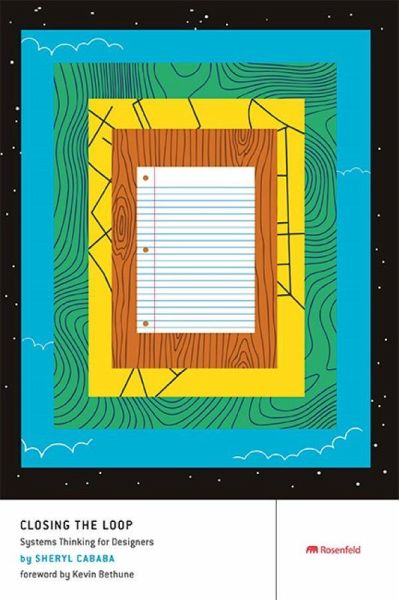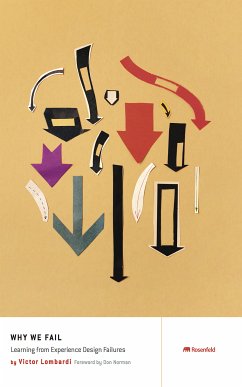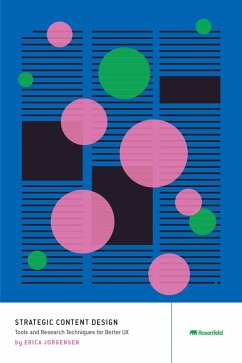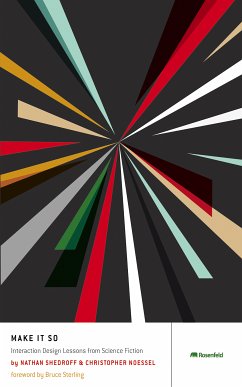
Closing the Loop (eBook, ePUB)
Systems Thinking for Designers
Versandkostenfrei!
Sofort per Download lieferbar
33,95 €
inkl. MwSt.
Weitere Ausgaben:

PAYBACK Punkte
17 °P sammeln!
As design continues to impact our products, services, and solutions at scale, it is more important than ever to understand the systems and context that surround design decisions. Closing the Loop will introduce you to a powerful systems thinking mindset and provide you with the tools and frameworks to define the systems that surround your work."Cababa's book comes at a crucial moment for design, and points the way toward a more inclusive, meaningful future for our work." David Dylan Thomas, author, Design for Cognitive Bias
Who Should Read This Book?
This book is for practitioners who ...
As design continues to impact our products, services, and solutions at scale, it is more important than ever to understand the systems and context that surround design decisions. Closing the Loop will introduce you to a powerful systems thinking mindset and provide you with the tools and frameworks to define the systems that surround your work.
"Cababa's book comes at a crucial moment for design, and points the way toward a more inclusive, meaningful future for our work." David Dylan Thomas, author, Design for Cognitive Bias
Who Should Read This Book? This book is for practitioners who want to incorporate systemsthinking methods into their practice. Design researchers, strategists, and experience designers will benefit from the book's tools and instruction to broaden their perspectives, as well as people from technology, healthcare, education, and other spaces in which humancentered design is incorporated.
Takeaways
Readers will learn to:
"Cababa's book comes at a crucial moment for design, and points the way toward a more inclusive, meaningful future for our work." David Dylan Thomas, author, Design for Cognitive Bias
Who Should Read This Book? This book is for practitioners who want to incorporate systemsthinking methods into their practice. Design researchers, strategists, and experience designers will benefit from the book's tools and instruction to broaden their perspectives, as well as people from technology, healthcare, education, and other spaces in which humancentered design is incorporated.
Takeaways
Readers will learn to:
- Combine usercentered design with systems thinking to understand interconnections and interventions to create goals that benefit society.
- Expand their thinking about what constitutes problemsolving in order to reframe problem spaces.
- Map the status quo in order to better envision the future.
- Kick off primary research by conducting interviews with subject matter experts.
- Use stakeholder maps as a form of analysis and synthesis output.
- Create a causal loop map to articulate systems forces in the form of cause and effect.
- Develop a theory of change to plan initiatives that will lead to the desired outcomes and impact.
- Use the futures wheel as a tool to imagine the impact of decisions.
Dieser Download kann aus rechtlichen Gründen nur mit Rechnungsadresse in A, D ausgeliefert werden.













